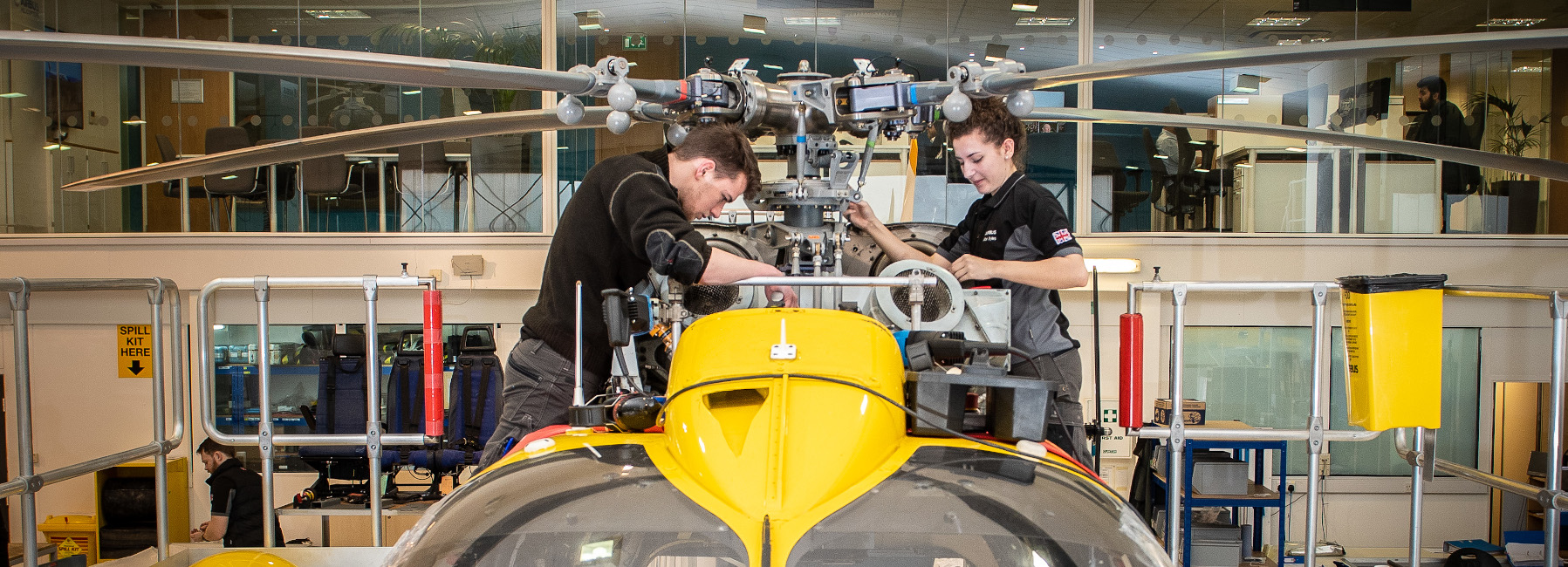
Top 10 questions and answers to help you decide if an apprenticeship is right for you.
There are different decisions you have to make throughout your life, some big, some small. The important thing whenever you make a decision is to ensure you have as much information as possible to make an informed decision.
From an education point of view there are a number of decision-making moments that come at you and in this blog, we are going to take a look at two of them.
1. What do you do once you have done your GCSEs?
At 16 you have to continue in education or training until your 18, that’s the law, so no way of getting round that. The decision, therefore, in a very simplistic way is:
- Stay on at school and complete year 12 and 13 doing A levels?
- Go to college and complete a course?
- Complete an apprenticeship?
In our opinion the third is a really good option, because it’s what we do and therefore we are biased! Apprenticeships don’t suit everyone and one of the other options above may well suit you better – a google search can give you more information about those options.
So who would suit an apprenticeship – more specifically an engineering apprenticeship? Students with a natural interest in an area of engineering are ideal, those who enjoy problem solving are great and those who feel a work environment mixed with an academic environment would suit them best are pretty much perfect.
2. What do you do once you hit 18 and no longer have to be in education?
At 18 you again have three options within education/employment, we are not counting those who want to put a backpack on and see the world.
- Go to university / college?
- Get a job?
- Complete and apprenticeship?
Similar to the above, we are going to champion the apprenticeship route for obvious reasons. Like those looking to do an apprenticeship at 16, those entering at 18 are doing so for similar reasons. Employment by a business and the balance between gaining skills/qualifications whilst also earning a wage are a bigger drive for those looking to do an apprenticeship at 18 than those at 16. By 18 you probably have a better idea of an area or type of apprenticeship you want to do and businesses will look to take on those who can bring something to the table in terms of future employment and evolution of the business.
Questions and answers
Here are the answers to 10 questions that may help form your opinion as to whether an apprenticeship is right for you or not.
1. Will I get paid and how much?
Yes! As an apprentice you get a salary which is determined by your employer. There is a national minimum wage for apprentices however traditionally, engineering apprentices are paid considerably more. Typically, a Level 3 Apprentice can expect a starting salary of around £12k per year and a Level 2 Apprentice of around £9k per year.
2. How many hours a week will I have to work?
It’s a full time, 5 day a week job. Hours will be set out by the employer however an apprentice is not allowed to work more than 40 hours per week so it will be under that. College time is within the working hours, you are not expected to do any college element on top of the full-time job.
3. Will I be offered a role at the end of my apprenticeship?
Our employers train apprentices for specific roles and/or to secure their workforce for future years. They put time, effort and money into the training process, so it is in their interest to retain the apprentice once they have completed their programme. Providing you are successful within your apprenticeship and successful in your employment then there is very little reason an employer wouldn’t offer you a role beyond your training.
4. Am I employed by the business?
Yes! You are employed by the company and as such you receive the same terms, conditions and benefits as any other employee. You will have an employment contract which will set out all these elements including holiday entitlement, wages and other conditions under which you are employed.
5. How old do I have to be to do an apprenticeship?
Any age. We focused above on those entering an apprenticeship at 16 or 18, however, an apprenticeship can be taken on at any age. Apprenticeships are also open to those already employed and a number of businesses use them as a form or professional development (CPD) for their current workforce.
6. I’ve already done an apprenticeship; can I do another?
Yes, and no! Yes, you can work your way up the apprenticeship ladder from wherever you start. So, if you complete a level 2 you can progress onto a level 3 and then 4,5,6,7. You can jump in at any level providing you have the previous academic attainment to begin higher up the ladder.
The ‘no’ isn’t really a no, it is just unlikely. If you have already completed a certain level apprenticeship, then an employer can’t claim funding for you to do that level again. This means an employer is unlikely to take you on as an apprentice if it means you will repeat a level, unless they are happy to pay for it all without claiming funding, which is rare.
7. What qualification will I get?
This depends on the level of apprenticeship you are completing, for example: -
On completion of a level 3 you will receive an Apprenticeship Completion Certificate, a Btec or City & Guilds technical certificate and an NVQ diploma certificate. Level 4 – 7 you begin to work towards a degree and masters qualifications.
8. What is the mix between college and working within the business?
This depends on the apprenticeship standard you are working towards; some have a heavy college element whilst others have very little. It can also depend on how the employer wants to structure the company training plan. Some employers prefer to front-load the college element with their apprentice spending their whole first year in college.
Other employers prefer a gradual approach and will release you to college for 1 or 2 days a week over a longer period of time.
9. Do I have to pay anything towards my apprenticeship?
No. The cost of your training is met by the employer who is able to access support from the government. Generally, the employer will also provide you with the tools needed for the job and any Personal Protective Equipment (PPE) that is required. You will have to cover the cost of getting to and from work so your location in relation to the business location is something that you should consider before applying or accepting an apprenticeship.
10. What is the difference between apprenticeship providers?
There is a number of organisations who deliver apprenticeships - independent providers (like us), colleges and universities. Most of the time you will be attracted to an apprenticeship opportunity by the role or business within which the apprenticeship is based, rather than who is facilitating it on behalf of that employer.
Now, we can only speak for ourselves here. It is our belief that an apprenticeship within an HR business will involve a very different set of skills and capabilities than an apprenticeship at an Engineering business. Therefore, we feel an apprentice provider who specialises in a certain business area (like we specialise within the Engineering sector) will provide you with a different level of learning, support and outcome to a provider who might offer a range of apprenticeships across a number of sectors.
More questions? Ask us, we are here to help!
As I say, this is just our opinion and ultimately you need to find an apprenticeship within a business you are interested in and that motivates you – it is just always worth questioning who is facilitating the apprenticeship and what they are going to do to help you achieve your career goals.
Written by Mark, Chief Exec.
